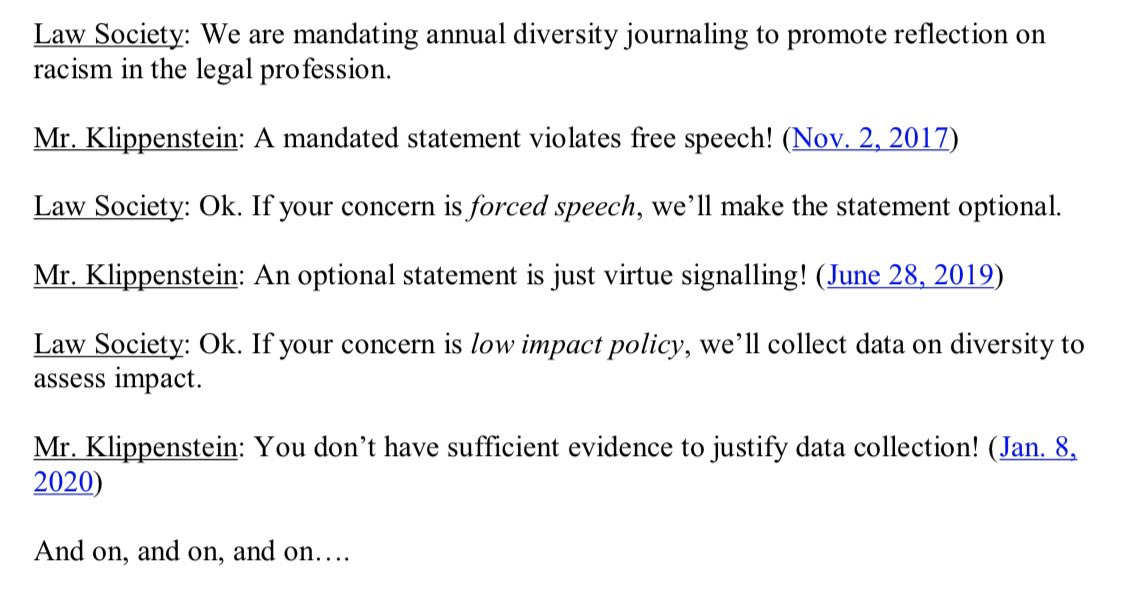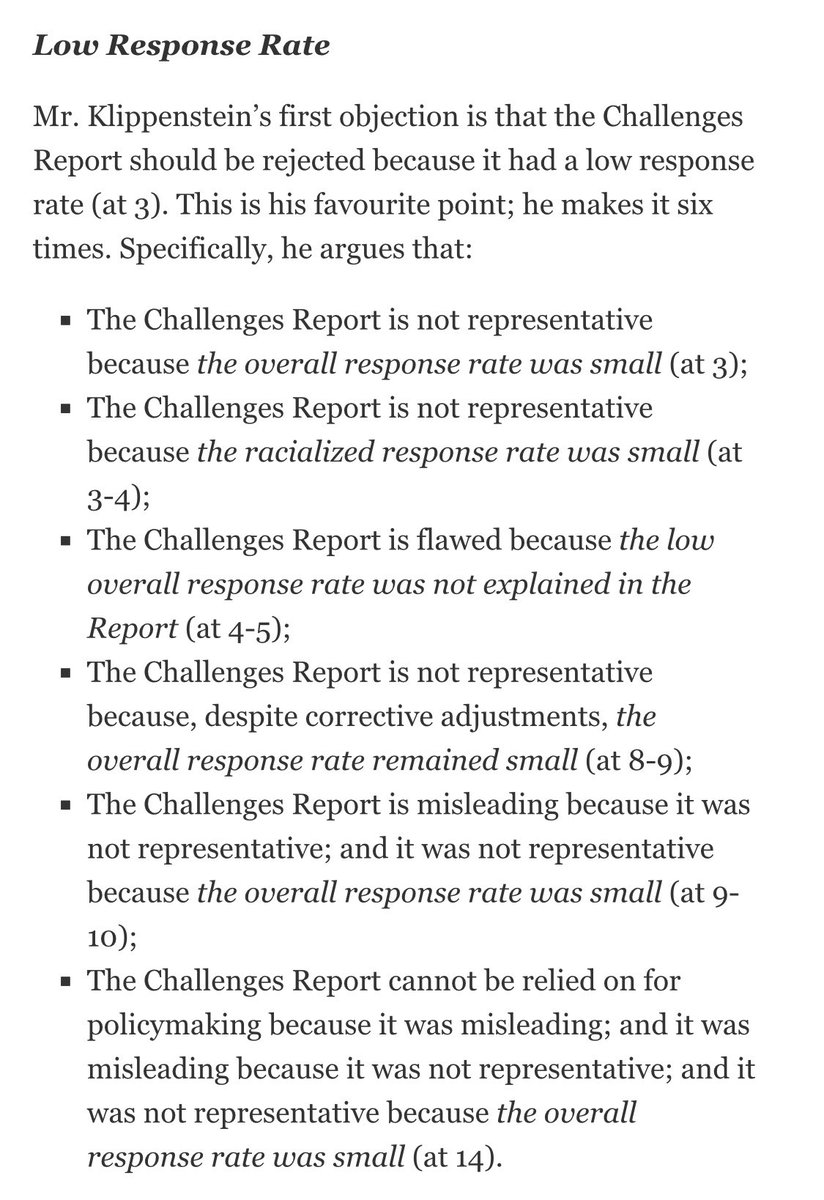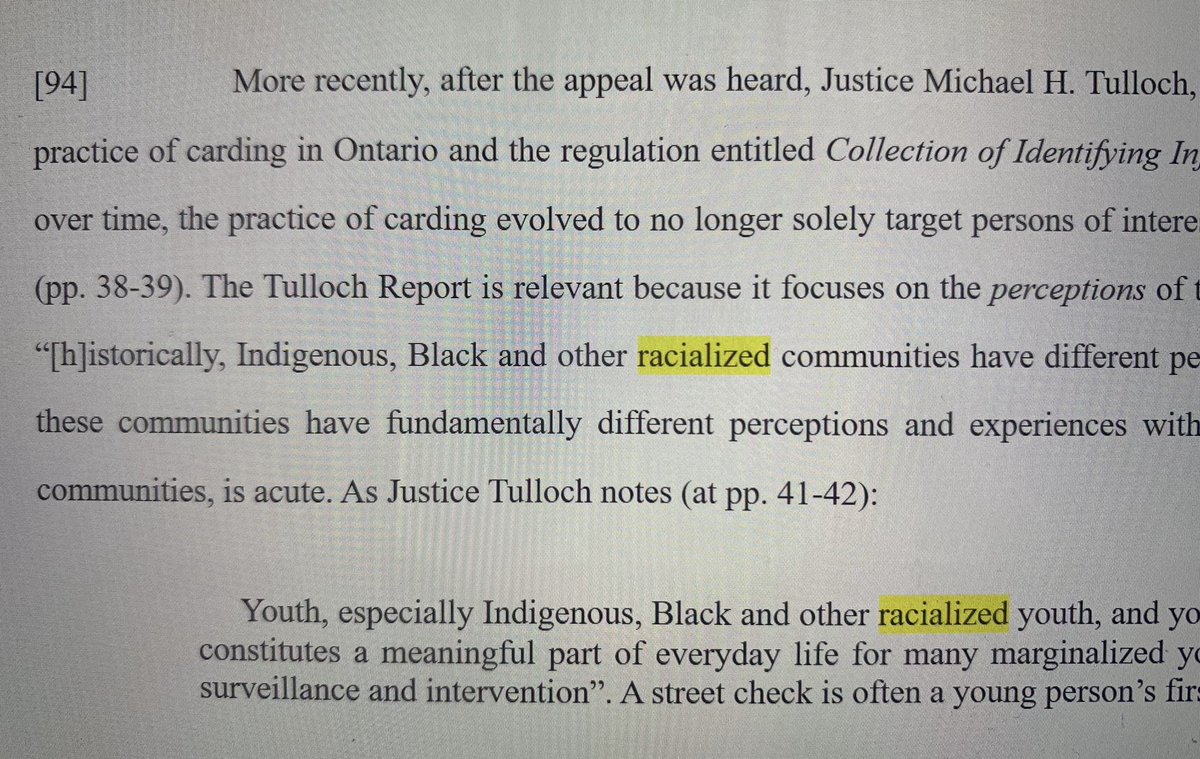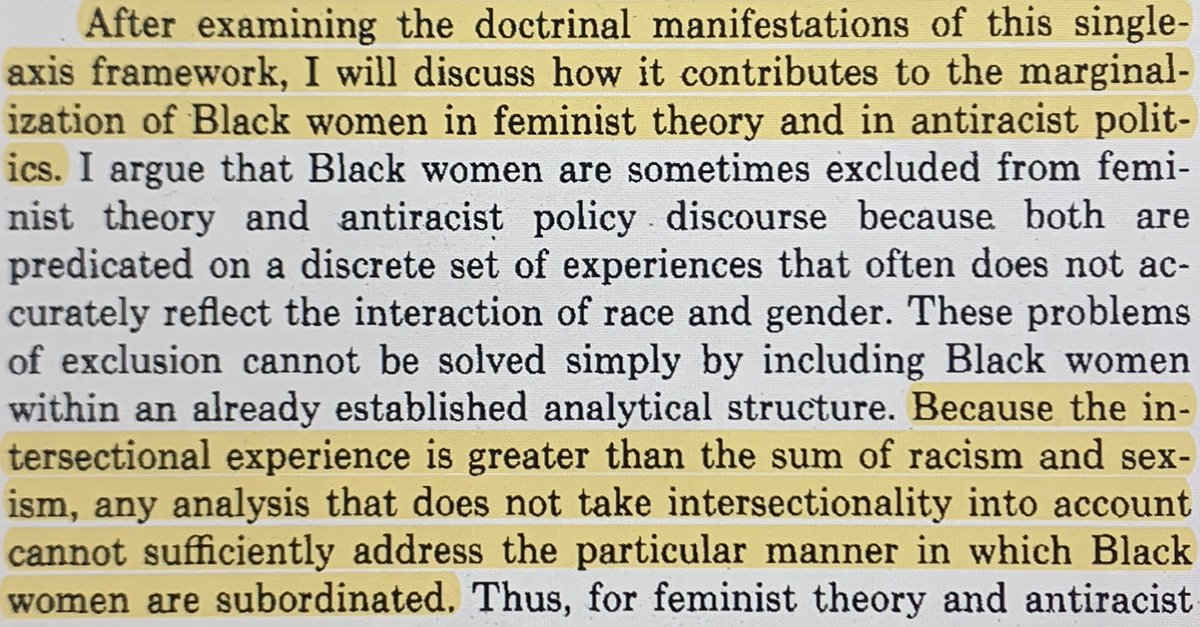I disagree in my latest post on @ABlawg, outlined below 🧵 ablawg.ca/wp-content/upl…
Mr. Klippenstein argues that the LSO’s survey evidence indicating systemic racism is ideologically and methodologically flawed. For this purported reason, he wants to undo the LSO’s modest equality initiatives.
I have, broadly speaking, three responses.
Demanding “proof” of systemic racism is a distraction. The LSO doesn’t have to prove there is sufficient racism to justify equality initiatives, just as it doesn’t have to prove that Continuing Professional Development actually enhances lawyers’ competency.

Mr. Klippenstein concedes prejudice “undoubtedly exists” in the legal profession. Accordingly, his resistance to basic equality initiatives requires holding the perverse view that the current amount of racism is—like Goldilocks 3rd bowl of porridge—“just right”🤨
The general points above rebut all of Mr. Klippenstein’s arguments. Even if the the survey data was flawed—for whatever reason—equality initiatives remain justified.
But I also respond to each specific survey criticism he raises, summarized below.
This claim is baseless. A 6.3% survey response rate is not, in itself, statistically problematic. Indeed, surveys routinely rely on much smaller population percentages, while maintaining reliability.

The LSO’s survey was voluntary, and therefore risked bias resulting from who ultimately opted to participate in it. I concede that. But I still have two responses to how Mr. Klippenstein advances this criticism.
To address more participation by racialized respondents, their replies were weighted. Mr. Klippenstein rejects this b/c the sample size remained low. But this addressed the *ratio* of racialized respondents, not the *size*—he misunderstands this.
Mr. Klippenstein assumes that any bias in survey response must have *overstated* racism in the profession. But given his (and others’) efforts at resisting equality in the LSO (op-eds, lawsuits, etc), such bias could have similarly *understated* racism.
Mr. Klippenstein cherry-picks questions where acquiescence bias could overstate racism findings while ignoring other questions where it could understate those findings. And his claim that survey questions were “highly emotional” is unsubstantiated.
Mr. Klippenstein acknowledges that confidential sources are needed for candour. And his criticism that sources were not scrutinized to the same extent as courtroom experts is unpersuasive—distinct standards apply to courtrooms and qualitative studies.
This one is my favourite.
Mr. Klippenstein claims that the survey results are “essentially useless” because they used the term “racialized”—in his view, this is clear evidence of how “identity politics” compromised the study.
Three responses:
Mr. Klippenstein’s objection to “racialized” is that it imports social construction “ideology”. But if he prefers a term that rejects social construction, he isn’t critiquing the presence of ideology, but which ideology was chosen (i.e., not his).




Mr. Klippenstein, while resisting social construction, oscillates between various contradictory theories of racial formation (e.g., self-identification/genetics), illustrating, ironically, social influence over racial categories.
Mr. Klippenstein simply resists the truth; race *is* socially constructed. Conflicting standards in historical race litigation (e.g., one drop rule/preponderance of blood rule) reflect this. And experts across disciplines agree on this fact.
Mr. Klippenstein claims the survey results conflict w/ the prior Kay Report. But he misrepresents the Kay Report to exaggerate this conflict, and says he is contextualizing the results, without mentioning any alternate and plentiful racism research.
1. selectively demands evidence to pretextually resist equality;
2. relies on the perverse view that existing racism is “just right”; and
3. misunderstands statistics, qualitative research, and academic consensus on race.
Stop debating racism 🛑🗣
Start strategizing equality ✅✊🏾
/fin















